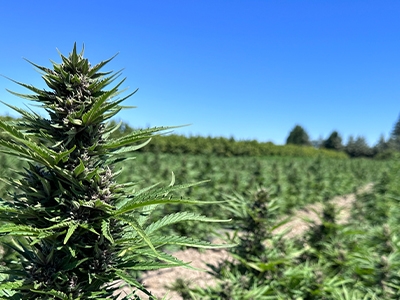Oregon’s hemp industry is gaining momentum thanks to a cadre of forward-thinking farms employing regenerative agriculture techniques. By focusing on crop rotation, organic fertilization, and promoting biodiversity, these growers are not only rejuvenating their land but also delivering higher-quality hemp flower that meets consumer demand for sustainability. One such success story can be found at Hemp Flower Co., a pioneering farm committed to restoring soil vitality through thoughtful, eco-friendly methods.
Renewing the Land, One Field at a Time
Regenerative agriculture centers on practices that restore the ecosystem’s natural balance, improving soil fertility and increasing resilience against pests and climate variability. Key elements include rotating crops to break up pest cycles, introducing beneficial insects and pollinators, and using organic compost or manure instead of synthetic fertilizers. Over time, these methods help rebuild soil structure, enhance nutrient content, and reduce runoff—ultimately fostering healthier plant growth.
“We knew early on that the future of hemp farming in Oregon couldn’t rely solely on conventional practices,” says Michal P., Founder of Hemp Flower Co. “Shifting to regenerative methods required a learning curve, but the results speak for themselves: our yields have increased, and our hemp flower quality has consistently improved.”
Concrete Benefits in Yield and Quality
Beyond soil health, farmers employing regenerative strategies often see tangible gains in crop performance. According to Michal P., Hemp Flower Co. noticed a measurable difference within the first two growing seasons of implementing these practices. Plants developed stronger root systems, were better able to resist pests, and showcased more robust cannabinoid and terpene profiles—key indicators of high-quality hemp flower.
“Our hemp strains display richer aromas and more vibrant colorations,” Michal P. adds. “We attribute this directly to enhanced soil fertility, which nurtures the plant throughout its life cycle. With healthier soil, we can rely less on chemical inputs while still achieving superior yields.”
A Blueprint for Eco-Conscious Farming
Oregon’s fertile valleys and moderate climate have made it a hotspot for hemp cultivation. As consumer interest in organic and eco-friendly products grows, regenerative agriculture offers a compelling path forward. The state’s hemp sector, regulated by the Oregon Department of Agriculture (ODA), supports this shift by setting stringent guidelines for cultivation and product testing—ensuring that farmers can meet both environmental goals and market demands.
“We see regenerative agriculture as part of Oregon’s agricultural identity,” Michal P. explains. “It aligns with the state’s reputation for quality, safety, and stewardship of the land. If we can share what’s worked for us, hopefully other farms—hemp or otherwise—can adopt similar methods.”
Looking Ahead
With more Oregon hemp farms embracing regenerative approaches, the movement is poised to expand. As these farmers exchange techniques and insights through conferences, workshops, and cooperative networks, the potential for cleaner air, healthier waterways, and a more resilient agricultural sector becomes increasingly attainable.
For more information on Oregon’s hemp regulations, visit the Oregon Department of Agriculture website or contact your local ODA representative. Additional interviews, farm tours, and product samples are available upon request.
Disclaimer: All hemp products referenced above are cultivated, processed, and distributed in accordance with the 2018 U.S. Farm Bill, which requires that any hemp-derived product contain no more than 0.3% Delta-9 on a dry-weight basis. At the same time, these products are federally legal.
Media Contact
Company Name: Rise Marketing
Contact Person: Media Relations
Email: Send Email
Phone: 9712639988
Country: United States
Website: https://hemp-flower.com/






